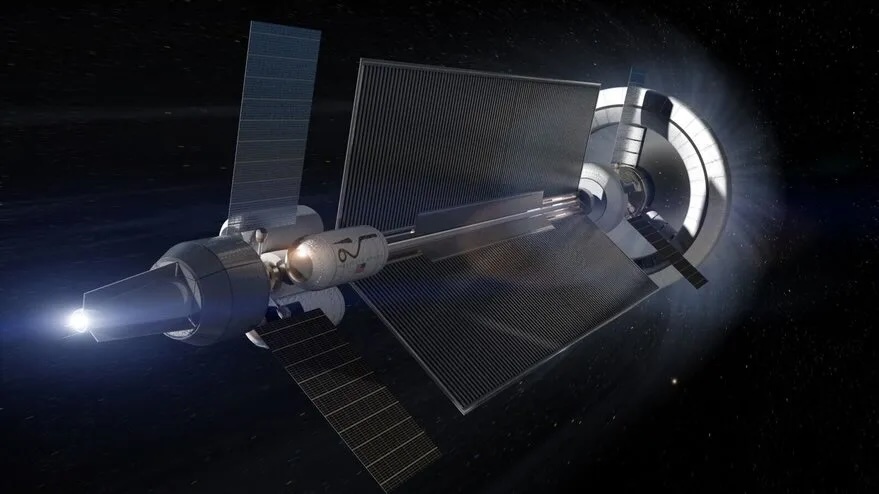4.04.2024

Credit: Helicity Space
SAN FRANCISCO – Helicity Space, a California startup developing fusion engines for spaceflight, announced an investment April 2 from Lockheed Martin Ventures.
While the parties declined to reveal the value of the investment, Lockheed Martin’s backing is important because it’s one of the “strategic partners that will matter over the next 10 years,” Helicity co-founder Stephane Lintner told SpaceNews.
Other strategic partners include Airbus Ventures and Voyager Space Holdings, two of the investors in Helicity’s seed funding round announced in December.
Deep Space
Pasadena-based Helicity is developing technology to propel spacecraft with short bursts of fusion.
“Propulsion is the biggest problem we have right now” for deep space travel, Lintner said. “Fusion brings the promise of very little propellant, very high power and potentially covering very long distances.”
Another approach to speeding up deep-space transportation is nuclear thermal propulsion, which Lockheed Martin is exploring under an agreement with NASA and the Defense Research Projects Agency.
“As we look towards the future of travel beyond the moon, other methods of propulsion need to be undertaken,” said Chris Moran, Lockheed Martin Ventures vice president and general manager. “A nine-month or one-year trip to Mars is quite long. If you want to go beyond Mars, the mission will be dominated by the mass of the propellants.”
As a result, Lockheed Martin sees potential in Helicity’s plasma fusion approach.
Four Guns
“Many things need to be worked out but they’re at an interesting phase,” Moran said. “They are combining plasma guns to create an intense plasma with the level of heating that’s required to create a fusion-type result. They’ve done it with two guns.”
Lockheed Martin Ventures and other investors are providing funding for Helicity to continue testing with four plasma guns.
“The hope is that they can retire a certain degree of risk to allow us all to see whether this is a practical approach or not,” Moran said. The testing also may provide information on “the levels of thrust that can be created. Once we understand that, then we get a good understanding of the future work that needs to be done.”
Helicity sees Lockheed Martin as a potential long-term customer and as a strategic partners who could offer guidance in navigating the defense sector and attracting government support.
Plus, Lockheed Martin Ventures’ backing “indicates that the field is maturing” and lends credibility to Helicity’s technology because of the due diligence that proceeded the investment, Lintner said.
Lockheed Martin Ventures usually invests between $1 million and $5 million in early-stage companies developing “disruptive, cutting edge” technologies in the defense giant’s current markets or new areas of interest. Space companies in the Lockheed Martin Ventures portfolio include ABL, Agile Space Industries, Elve, HawkEye 360, Hedron, Orbit Fab, Rocket Lab, Satellite Vu, Slingshot Aerospace, Terran Orbital and Xona Space Systems.
Quelle: SN
